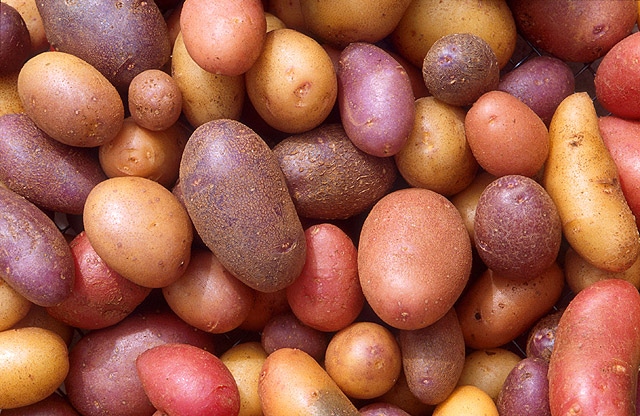Potential benefits include higher crop yields, improved environmental impact and reduced food waste.
August 7, 2018

The J.R. Simplot Co. announced that it has executed a joint intellectual property licensing agreement with Corteva Agriscience, Agriculture Division of DowDuPont, and the Broad Institute of MIT & Harvard for foundational CRISPR-Cas9 and related gene editing tools.
According to the announcement, the technology provides Simplot with another avenue to bring desirable traits forward in certain fruits and vegetables and advance products to the market in the U.S. to benefit both farmers and consumers. Simplot provides a full line of fresh, frozen and chilled offerings that include potatoes, avocados and strawberries.
Simplot said each year, 35% of fresh potatoes worth $1.7 billion are lost because of waste from poor storage or shelf life, according to the Journal of Consumer Affairs. Avocados, strawberries and other fruits and vegetables have similar losses, and gene editing technology like CRISPR-Cas9 genome editing tools may be able to reduce that significantly.
"We're excited to add CRISPR-Cas9 technology to our platform of tools aimed at providing more sustainable produce for the industry," said Dr. Susan Collinge, vice president of Simplot Plant Sciences. "These pioneering tools may enable growers to achieve higher yields on less land resulting in fewer pesticides, water and labor needs while extending the quality of a consumer's favorite foods."
Comprehensive intellectual property rights allow entities to apply scientific tools as widely as possible. To enable such access, Corteva Agriscience and the Broad Institute have agreed on a joint non-exclusive licensing framework for agricultural use, the announcement said. The license to Simplot represents the first time that Corteva Agriscience and Broad Institute have jointly provided a license of CRISPR-Cas9 genome editing tools to an agricultural company.
Simplot is one of the largest potato processors in North America and processes a variety of fruits and vegetables around the world. Using different genetic techniques, the company previously commercialized two generations of its Innate-branded line of potato varieties by adapting genes only from wild and cultivated potatoes. The potatoes feature reduced bruising and black spots, reduced natural asparagine and protection from late blight pathogens.
"Our goal is to maximize the scientific impact of CRISPR-Cas9 for improving agriculture, and our joint licensing agreement offers the opportunity to provide much broader access to help researchers reduce food waste, limit pesticides and improve drought resistance while promoting safe and ethical uses of groundbreaking technologies," Broad Institute chief business officer Issi Rozen said.
Innovative approach
In a related announcement, the U.S. Department of Agriculture's Agricultural Research Service (ARS) said its researchers in Albany, Cal., have found a way to streamline the process scientists use to insert multiple genes into a crop plant, developing a reliable method that will make it easier to breed a variety of crops with vastly improved traits.
The technology is expected to speed up the process for developing new varieties of potatoes, rice, citrus and other crops that are better equipped to tolerate heat and drought, produce higher yields and resist a myriad of diseases and pests, ARS said.
ARS added that crops with greater resistance to pathogens and insects could greatly reduce pesticide use and prevent billions of dollars in crop losses.
“Making genetic improvements that were difficult or impossible before will be much easier because we can now insert not just one or two genes but multiple genes into a plant in a way that will lead to predictable outcomes,” said Roger Thilmony, an ARS molecular biologist in Albany.
A paper describing the achievement by Thilmony, ARS geneticist James Thomson and former ARS postdoctoral researcher Ray Collier was published in the August issue of The Plant Journal.
The GAANTRY gene stacking technology will be freely available to anyone interested, and a commercial firm — Simplot — is planning to use it to introduce multiple genes into potatoes to make them more resistant to late blight, which is caused by a fungus-like organism. Late blight can destroy entire fields and force some farmers to spray fungicides up to 15 times a year.
“We have struggled to put multiple late blight resistance genes into potatoes for years. They are very long, complex genes, and with existing technologies, it’s been extremely difficult, but the GAANTRY technology will help us tremendously,” Simplot director of research and development Craig Richael said.
ARS said the unique GAANTRY platform stabilizes large “stacks” of DNA needed for conferring key traits, allowing researchers to insert suites of genes “so precisely that no unintended DNA is added or lost during the process,” Thomson said.
“Before this, assembling 10 genes to insert into a new line would be difficult or impossible, but this technology basically stabilizes the stack and makes for results that are more stable and much easier to predict,” Thilmony said.
You May Also Like



